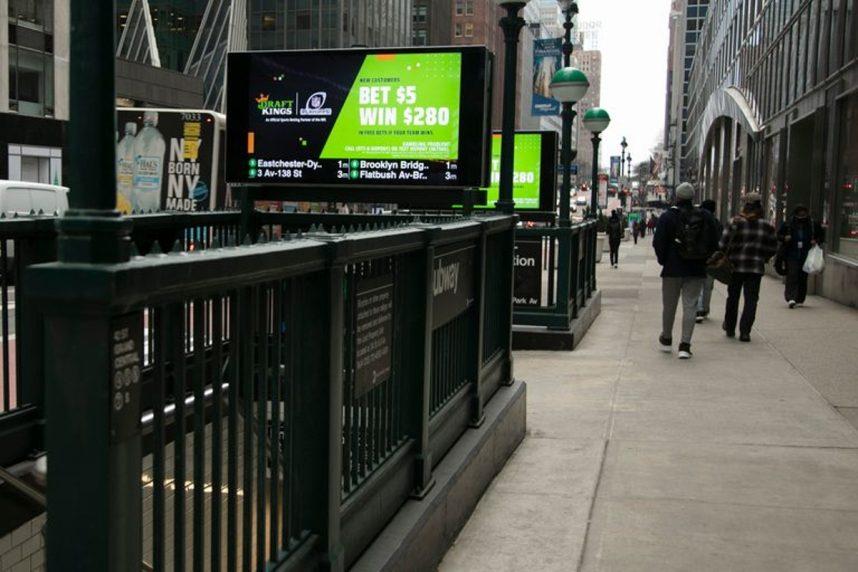Published on: October 3, 2024, 02:15h.
Last updated on: October 3, 2024, 02:23h.
New York sports betting ads are now required to include warnings about the potential risks of gambling that casinos and other betting industries must follow in the Empire State.

This week, Governor Kathy Hochul signed S1550/A1118 in New York. The law demands that all sports betting advertisements contain a problem gambling hotline number and disclose the potential addictive effects and harmful consequences of participating in sports betting.
Protecting New Yorkers from the dangerous and addictive effects of problem gambling and sports betting is crucial for the well-being of our state. I want New Yorkers to enjoy their favorite activities safely and be cautious when necessary,” said Hochul.
“With the approval of this new bill, I believe that New Yorkers will have better access to the necessary safety resources to protect themselves from addiction,” added the governor.
Regulatory Mandate
Before the signing of S1550/A1118 by Hochul, casinos and other gambling establishments in New York were required to include a problem gambling hotline. The gaming laws now expand on responsible gaming messaging to include warning messages similar to tobacco products in gambling advertisements. The bills also bring sportsbooks under the gambling umbrella.
The New York Problem Gambling hotline is 877-8-HOPENY (877-846-7369). Managed by the state Office of Addiction Supports and Services, individuals seeking help can also initiate the process by texting HOPENY or the number 467369.
The sports betting advertising regulations do not specify that the state’s problem gambling center must be mentioned, but only “a problem gambling hotline number.” Other notable gambling helplines include 1-800-GAMBLER and the National Problem Gambling Helpline operated by the National Council on Problem Gambling.
New York became the epicenter of the largest sports betting industry in the country after launching its regulated online sportsbooks in January 2022. In the state’s fiscal year of 2023/24, from April 2023 to March 2024, New York sports bettors wagered over $19.7 billion, with almost all of it ($19.61 billion) being bet online.
Bettors lost around $1.77 billion on their sports bets, with oddsmakers reporting a win rate of roughly 9%.
Sports Betting Concerns
Sports betting is now legal and operational in nearly 40 states and Washington, DC. Since the Supreme Court’s 2018 decision to overturn a federal ban on single-game sports betting, it is presumed that almost all Americans have encountered a sportsbook commercial.
As sports betting gains more popularity and sportsbooks see increased handle and revenue, many argue that more consumer protections are necessary to safeguard the public from problem gambling.
Some members of Congress and lawmakers in various state capitals are advocating for stricter regulations on sportsbook advertising. While some efforts to restrict or ban messaging like “free bets” and “risk-free” have been successful in certain areas, and New York is enhancing its gambling marketing rules, the national trade group representing sportsbooks in DC asserts that adequate responsible gaming safeguards are already in place.
The American Gaming Association (AGA) noted a 15% decline in sports betting advertising last year as sports gambling entered its fifth year of legalization.
Representative Paul Tonko (D-New York), sponsor of federal legislation to restrict the timing and content of sportsbook ads, aims to ban all sports gambling advertisements between 8 a.m. and 10 p.m.
Tonko commented on sportsbooks advertising deposit bonuses and free wagers, stating, “Just as in the tobacco industry when it was determined that that industry was posing a public health situation, we have now displaced Joe Camel with celebrity spokespeople and free product.”
Tonko and Senator Richard Blumenthal (D-Connecticut) are sponsors of the SAFE Bet Act, aiming to prohibit sportsbooks from using AI to tailor incentives and promotions to bettors, in addition to banning most sports betting ads during the day.


